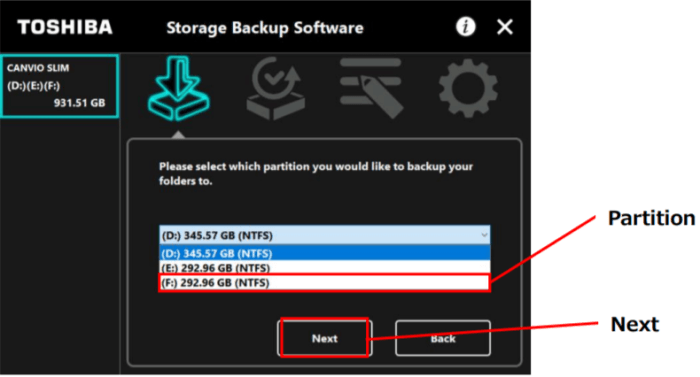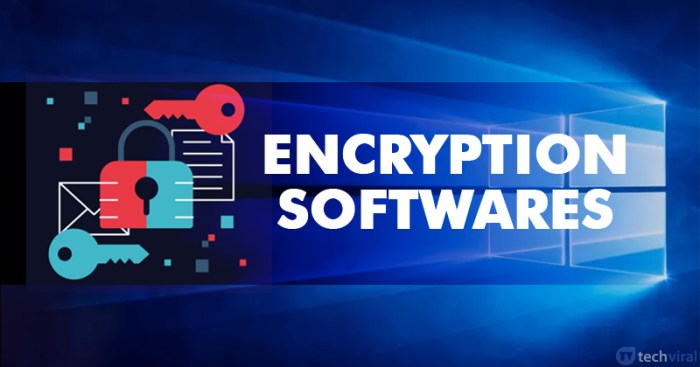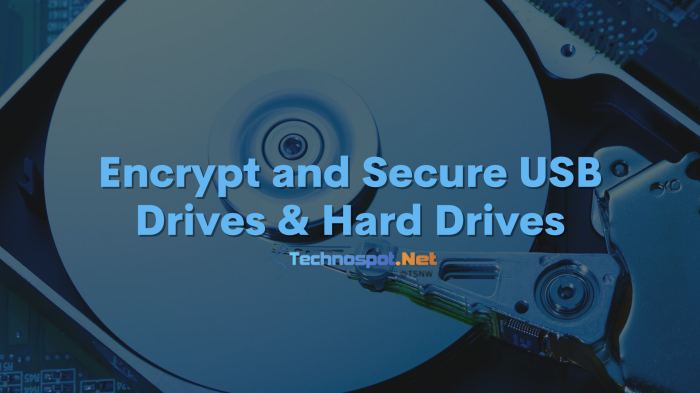Best encryption software for external hard drive – Protecting your sensitive data stored on external hard drives is crucial in today’s digital landscape. Whether you’re dealing with personal photos, financial records, or confidential work documents, robust encryption is paramount. This comprehensive guide explores the best encryption software options available, helping you choose the right solution to safeguard your valuable information. We’ll delve into various aspects, including features, ease of use, security protocols, and compatibility, providing you with the knowledge to make an informed decision.
Understanding Encryption and its Importance for External Hard Drives: Best Encryption Software For External Hard Drive
Encryption is the process of converting readable data (plaintext) into an unreadable format (ciphertext) using a complex algorithm and a cryptographic key. Only individuals with the correct key can decrypt the data and access its original form. This protection is particularly vital for external hard drives, as they are often more susceptible to theft or loss than data stored internally on a computer.
Types of Encryption:, Best encryption software for external hard drive
- Symmetric Encryption: Uses the same key for both encryption and decryption. Faster but requires secure key exchange.
- Asymmetric Encryption: Uses a pair of keys – a public key for encryption and a private key for decryption. More secure for key management but slower.
- Full Disk Encryption (FDE): Encrypts the entire hard drive, including the operating system and all data. Offers the highest level of protection.
- File-Level Encryption: Encrypts individual files or folders, allowing selective protection. Offers flexibility but requires careful management.
Top Encryption Software for External Hard Drives
The market offers a wide range of encryption software, each with its strengths and weaknesses. Choosing the right one depends on your specific needs and technical expertise. Here are some of the leading options:
1. VeraCrypt
VeraCrypt is a free, open-source disk encryption software based on the legacy TrueCrypt project. It’s known for its robust security and cross-platform compatibility (Windows, macOS, Linux). It supports both full disk encryption and file container encryption. Its open-source nature allows for community scrutiny, enhancing its trustworthiness. However, the interface can be considered less user-friendly compared to some commercial options.
2. BitLocker (Windows)
Built into Windows Pro and Enterprise editions, BitLocker provides full disk encryption. It’s easy to use for Windows users, integrating seamlessly with the operating system. However, it’s only available for Windows and doesn’t offer file-level encryption.
3. FileVault (macOS)
Apple’s built-in full-disk encryption solution for macOS. Similar to BitLocker, it’s user-friendly and integrates well with the operating system. It’s limited to macOS devices only.
4. PGP Whole Disk Encryption
PGP Whole Disk Encryption offers robust full-disk encryption for Windows, macOS, and Linux. Known for its strong security and enterprise-grade features, it’s a more comprehensive option but often comes with a higher price tag.
5. AxCrypt
AxCrypt is a user-friendly file encryption tool suitable for both personal and business use. It supports file-level encryption and offers easy sharing of encrypted files. While not as feature-rich as some other options, its simplicity makes it a good choice for users who prioritize ease of use.
Factors to Consider When Choosing Encryption Software
Selecting the right encryption software requires careful consideration of several factors:
1. Security Protocols
Look for software using strong encryption algorithms like AES-256. The key length is crucial; longer keys (e.g., 256-bit) offer significantly higher security.
2. Ease of Use
Consider your technical expertise. Some software is more user-friendly than others. If you’re not tech-savvy, choose a solution with a simple and intuitive interface.
3. Platform Compatibility

Source: ubackup.com
Selecting the best encryption software for your external hard drive is crucial for data security. The level of protection you need might depend on the sensitivity of your data; for example, if you’re storing images processed by a computer vision software development company , robust encryption becomes paramount. Ultimately, the choice of encryption software hinges on your specific security requirements and the level of protection you deem necessary for your sensitive files on the external drive.
Ensure the software is compatible with your operating system (Windows, macOS, Linux) and the devices you’ll be using.
4. Key Management
How are keys stored and managed? Losing your encryption key means losing access to your data. Choose software with robust key management features.
5. Cost
Some software is free and open-source, while others are commercial products with varying price points. Weigh the cost against the level of security and features offered.
6. Performance Impact
Encryption can impact the performance of your computer and external hard drive. Consider the potential slowdown, especially for full-disk encryption.
Frequently Asked Questions (FAQ)
- Q: Is encryption really necessary for external hard drives? A: Yes, especially if the drive contains sensitive data. Encryption significantly reduces the risk of unauthorized access if the drive is lost or stolen.
- Q: What is the best encryption algorithm? A: AES-256 is widely considered the gold standard for its strength and widespread adoption.
- Q: What happens if I lose my encryption key? A: You will lose access to your encrypted data. It’s crucial to securely store your key.
- Q: Can I encrypt a hard drive without reinstalling the operating system? A: Yes, many software solutions allow encryption without reinstalling your OS. However, full-disk encryption often requires a reboot.
- Q: Which is better: full-disk encryption or file-level encryption? A: Full-disk encryption provides broader protection, while file-level encryption offers more flexibility but requires more careful management.
- Q: Is VeraCrypt safe to use? A: VeraCrypt is widely considered a secure and reliable option, particularly due to its open-source nature and community scrutiny.
Conclusion
Protecting your data on external hard drives is crucial. Choosing the right encryption software depends on your specific needs, technical expertise, and budget. By carefully considering the factors discussed above, you can select a solution that offers the optimal balance of security, ease of use, and performance. Don’t delay; protect your valuable data today!
References:
Call to Action:
Start protecting your data today! Download and install your chosen encryption software and secure your external hard drives. Don’t wait until it’s too late.
General Inquiries
What is the difference between full-disk encryption and file-level encryption?

Source: techviral.net
Full-disk encryption encrypts the entire drive, while file-level encryption only encrypts specific files or folders.
How do I choose an encryption algorithm?
AES-256 is currently considered a very strong and widely accepted algorithm. Look for software that uses this or a similarly robust algorithm.

Source: technospot.net
What happens if I lose my encryption password?
Without the password, your data will be irretrievably lost. Choose a strong, memorable password and consider using a password manager.
Is it possible to encrypt a drive without specialized software?
While some operating systems offer built-in encryption features, dedicated encryption software often provides more robust features and control.
How can I ensure my encryption software remains up-to-date?
Regularly check for software updates to benefit from bug fixes and security improvements. Most reputable software vendors will notify users of updates.
